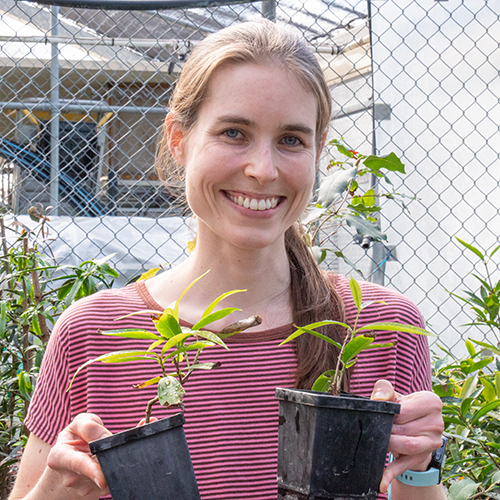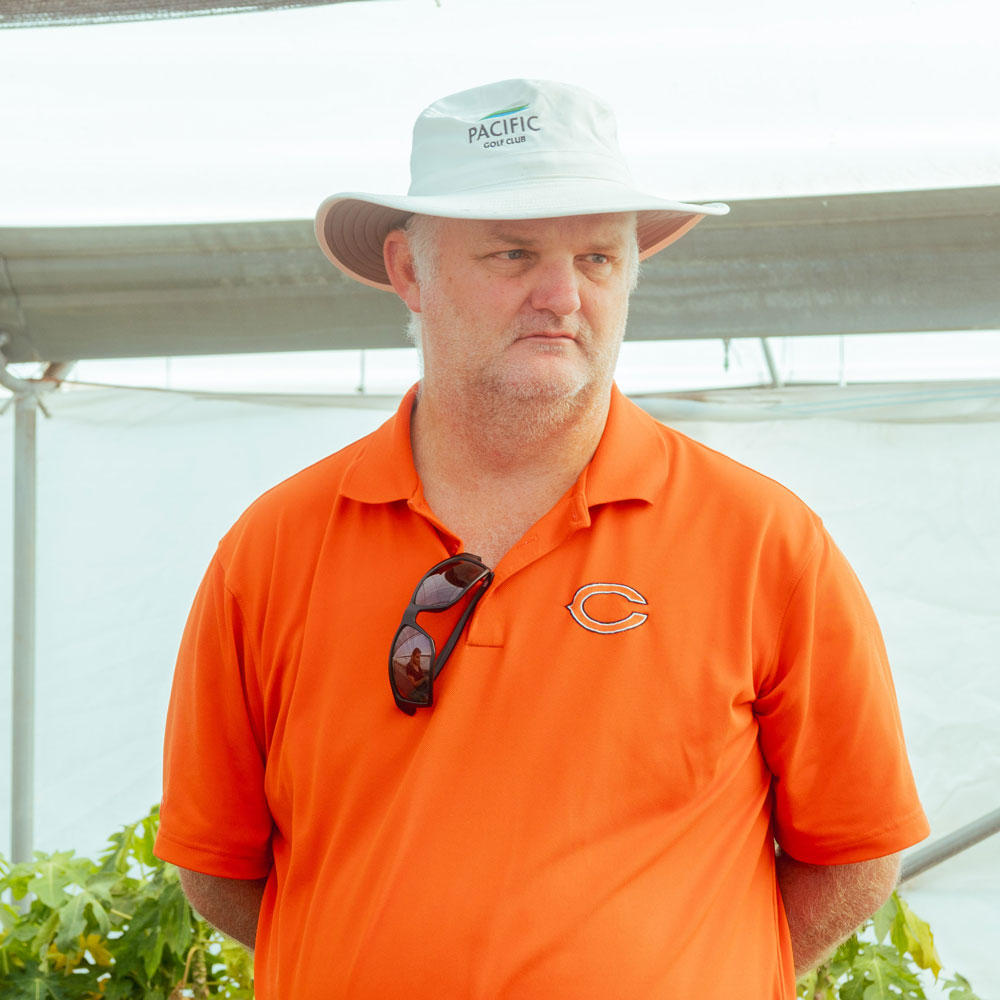RNA biopesticides for crops and native plants, rapid resistance tests for ticks in cattle and developing climate smart vanilla plants are the targets of three ARC Industry Fellowships awarded to three QAAFI researchers.

Dr Anne Sawyer from the Centre for Horticultural Science, has secured a $1,175,944 Mid-Career Fellowship to develop RNA biopesticides as next generation protection for myrtle rust and Phytophthora root rot.
“The aim is to create safe and environmentally sustainable RNA biopesticides as an alternative to chemical fungicides for controlling these and other plant diseases,” Dr Sawyer said.
“This would provide significant benefits to the $90B Australian agriculture industry by increasing productivity and sustainability, to consumers and the environment by reducing chemical usage, and to Australia’s rich biodiversity by protecting native endangered plants from disease.”
Dr Sawyer’s industry partners include the Department of Agriculture and Fisheries, Greenlife Industry Australia, Native Plants Queensland, Australian Nature Products, Anderson Horticulture and the Noosa and District Landcare Group.

Dr Hannah Siddle from the Centre for Animal Science has been granted $965,340 to develop rapid tests to manage chemical resistance in cattle ticks, a major burden on Australia’s beef industry.
“Cattle ticks are primarily controlled with chemicals called acaricides, to which they’re rapidly developing resistance, both in Australia and around the globe,” Dr Siddle said.
“This research will use innovative phenotyping and advance genomics to create rapid molecular tests for resistance.
“These tests would benefit the environment and industry by ensuring effective chemical use and safeguarding future beef production.”
Dr Siddle will work with Boehringer Ingelheim Animal Health, TBD International BV and the Department of Primary Industries (Biosecurity Queensland) for the Fellowship.

Dr Chris O’Brien from the Centre for Horticultural Science’s Early Career Industry Fellowship will focus on innovating vanilla for climate-smart production systems.
He received $515,109 in partnership with Australian Vanilla Plantations, J&S Biotech, AgriFutures Australia and the NT Department of Agriculture and Fisheries.
“The industry is keen to develop vanilla plants with superior growth and production but faces the challenge of a lack of secure supply of high quality, disease-free propagation material,” Dr O’Brien said.
““The Fellowship will allow us to develop in vitro breeding and improved technology using the Queensland-invented propagation technology for vanilla.
"This will ensure new cultivars with superior traits suited to protected cropping environments."
The Queensland Alliance for Agriculture and Food Innovation is a research institute at The University of Queensland established with and supported by the Department of Primary Industries.
Media: QAAFI Communication, Natalie MacGregor, n.macgregor@uq.edu.au, +61 409 135 651.



